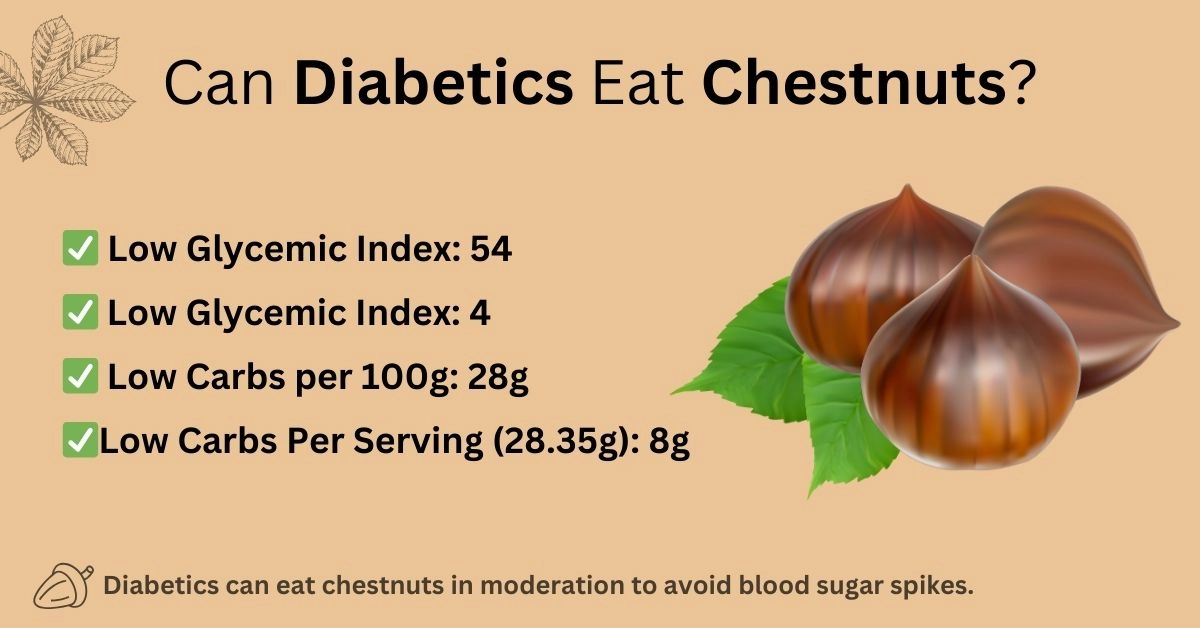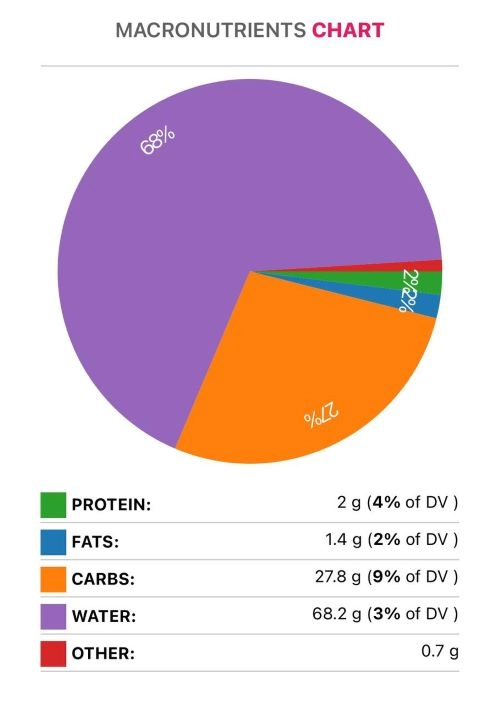Chestnuts and Diabetes - Are They Good For Diabetics

Introduction
In this article, we will be discussing the health impacts of chestnuts in diabetes.
Type-2 Diabetes
Research suggests that despite having more carbs than most nuts, chestnuts can help prevent blood sugar spikes.
According to one study, chestnuts' gallic acid and ellagic acid are potent antioxidants that protect your cells from free radical damage linked to various chronic diseases, such as diabetes. They may help manage blood sugar levels and improve insulin sensitivity, making your cells more responsive to insulin (1).
Chestnuts are high in fiber, which can help balance blood sugar levels and prevent spikes.
The central part of the chestnut fiber is soluble fiber. It dissolves in water, forming a gel-like substance that moves undigested and slows sugar absorption through your body. Besides, chestnuts have a low glycemic index: 54. They are considered low GI food, meaning they do not cause a blood sugar spike (2).
A mice-designed study also showed that chestnut supplementation in a diabetic mice sample reduced their adiposity and fat distributions.
However, the most important feature is reducing overall calories (3).
Visit our Glycemic index chart page for glycemic index values of 350+ pages.

